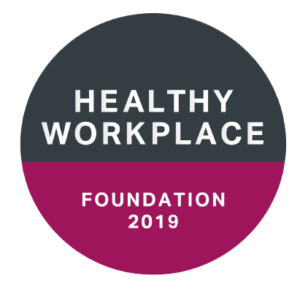Barry Kelly, Specialist Advisor – Physical Activity for Health reflects on how Londoners are affected by mental health issues at the workplace, and how these can be prevented through physical activity and sport.
Today, 10 October, marks World Mental Health Day 2017. This year the focus is on mental health in the workplace, which is very apt given that recent ONS figures suggest that Londoners spend on average 38 hours per week at work. Not only is this a high proportion of our week to spend working, our experience whilst there is a key factor in determining our overall well-being. A negative working environment can lead to a range of issues such as substance misuse (alcohol), absenteeism and reduced productivity. It therefore follows that employers have a major role to play in prioritising workplace initiatives aimed at improving physical and mental well-being and in helping create an environment that allows mental health issues to be raised and addressed. Being physically active also has a key role to play here since the evidence tells us that being active can reduce risk of conditions such as depression by up to 30%.
The situation is particularly acute in London, where sadly, the picture is probably worse than most of us could imagine. Latest figures show that one in four Londoners experience mental health problems – approximately two million Londoners. That is 13 people on every London bus or more than 100 people on every London Underground train. And unfortunately, some communities are at a higher risk of developing poor mental health than others. For example, Black Asian and minority ethnic communities, people living in poverty and lesbian, gay, bisexual and transgender people are all disproportionately affected.
To make matters worse, it is estimated that only one in four people receive treatment of any kind, which can in part be explained by the stigma associated with mental health and therefore people not seeking support. Clearly, what these figures indicate is that some groups fare worse than others, but overall no one is immune from mental health issues, including some top athletes and sportspeople operating in highly competitive and combative environments.
Former Leicester City and Celtic footballer Neil Lennon has spoken extensively on his battle with depression, for example. Lennon recently recounted an experience following a match between Celtic and Rangers in 2001 [which Celtic won 2-0!]. Lennon was in the dressing room surrounded by euphoric teammates he felt extremely isolated: “I couldn’t remember anything about the match and couldn’t share the excitement… I wanted to get away from there and go home to a darkened room.” Rewatching that match on television, Lennon’s mental state is not at all apparent; it was probably not clear to his teammates at the time. And here in lies the challenge – it is often very difficult to recognise mental health issues in colleagues, friends or even family. Maybe this is something we all need to get better at.
To some extent Thrive LDN, a new campaign/movement launched by the Mayor of London in July 2017, will seek to address this. Thrive LDN sets out six aspirations for improving mental health and well-being across the capital. One of these stated aspirations is to create “A city with a happy, healthy and productive workforce”, where business leaders speak more openly on mental health issues and their employees can in turn be more confident about talking about mental health. Thrive LDN is at an early stage, but it certainly is taking a more joined up approach to tackling the issue of mental health across London.
This takes us back to the workplace and the role of employers in protecting their employees’ mental health. We know that prevention is key when it comes to improving health and well-being and workplace health should be based on the range of employees’ needs. One key question here is how we continue to maximise opportunities to get people more physically active in the workplace and build activity into daily lives.
Among the range of possibilities here, NICE suggests: encouraging people to walk or cycle to work; encouraging staff and visitors to use stairs; providing staff with free or discounted gym memberships; supporting group recreational opportunities, such as walking groups or Pilates. Equally important is for employers to encourage workers to protect time to allow them opportunities to do more during their working day. This might include avoiding organising meetings over lunch times or introducing flexible working hours at the start and end of the day. Some of this is may not seem easy at first, admittedly, but if we are going to improve and protect the physical and mental well-being of employees we need to do more. Crucially, if we are going to help people with mental health issues we need to develop working environments that enable people to feel confident enough to raise the issues they are experiencing.
About the Author
Barry Kelly is London Sport’s Specialist Advisor – Physical Activity for Health. He can be found at [email protected].






